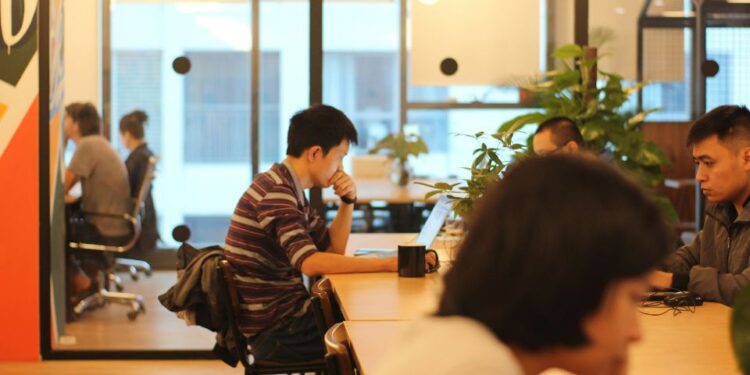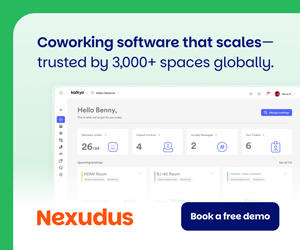- AI will change job roles, reducing some positions but boosting demand for human connection in coworking.
- Automation will take over routine professional tasks, leading to fewer traditional jobs.
- Coworking spaces must combine technology with personal service to remain essential.
Welcome to the second part of my new diary series in which I will be reflecting on what I see happening around me in the coworking and managed office sectors from different perspectives — as an operator of coworking locations, as a consultant and former fund manager and as a board member of the Flex Space Association (FlexSA).
My comments are my own and do not reflect the views of the various organisations. In the first part of my diary I was asking how business is in your centres in this second quarter and reporting on the weakening sentiment I was encountering in London.
In response to those thoughts, I was asked to think about longer term threats to the industry in general and from AI in particular. By threats, I mean in a Future of Work sense, rather than anything from wider politics, so I will not be addressing the potential collapse of the international trading system or anything of that ilk.
“Never make predictions, especially about the future,” is a good motto for a pundit to live by, but in carrying out today’s task, it is difficult to avoid entirely. However, I am probably safe in predicting that AI will change almost every type of work, both what is done, how it is done and who or what does it.
The laptop warrior blocking the table in the Starbucks, too mean or too marginal to pay for a coworking desk, will probably become extinct as producing content will be child’s play for AI, even assuming there is any demand for it in 2035.
Demand for professional services will probably remain strong, but aspects of the work will be done by AI, so there will be fewer people required to deliver the services, except perhaps for medical services where the aging population will continue to need human effort until robots take over.
Primary industries like mining and agriculture will continue to shrink in employment terms as will secondary industries like manufacturing and processing, despite what politicians may say. Office space related to those industries will also reduce, though that is not material for coworking.
The big issue for our industry centers on other service providers such as consulting, financial services, government and the public sector together with the universe of small- and medium-sized enterprises.
What is going to happen to them?
Some will disappear; translation services are almost gone as an example, and interpreting will soon follow suit. Robo-advisers will no doubt replace many financial planners and advisers and become the norm for mass market investors.
I expect the government payroll will shrink materially, but from natural causes rather than any top down change of policy, though this will partly be offset by staff managing care workers. Staff administration and HR in general will become more automated.
Legal services may go the same way: the Solicitors’ Regulatory Authority, the governing body for most lawyers in the U.K. recently licensed the first law-firm in the U.K. to run on AI. I do not mean it is human lawyers using AI to give legal advice, as that has been the case for years. I mean AI lawyers giving legal advice, monitored as necessary by humans.
Where lawyers go, accountants will follow and it won’t be long before humans will just be monitoring the robots-auditors’ work. My own auditor is already using AI.
For coworking, AI can be an opportunity as well as a threat—especially as legal and financial clients have historically been loyal flex space members.
The flexible workspace industry is now in a position to provide a human touch for our clients when looking after their business needs in this increasingly automated environment, while no doubt streamlining our own administration and operations with suitable apps.

 Dr. Gleb Tsipursky – The Office Whisperer
Dr. Gleb Tsipursky – The Office Whisperer Nirit Cohen – WorkFutures
Nirit Cohen – WorkFutures Angela Howard – Culture Expert
Angela Howard – Culture Expert Drew Jones – Design & Innovation
Drew Jones – Design & Innovation Jonathan Price – CRE & Flex Expert
Jonathan Price – CRE & Flex Expert











